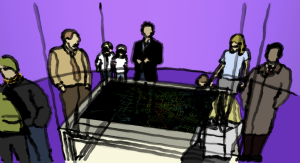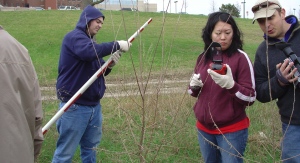Shareable interfaces: Mobile, tangible and ubiquitous computing

Our research is concerned with developing new frameworks, principles and concepts for mobile, tangible and ubiquitous computing. We are also exploring how these technologies might be used in the real world. We investigate the security and privacy aspects in ubiquitous computing. Another strand of our research focuses on augmenting and extending everyday learning and work activities with interactive technologies that move "beyond the desktop".
We have designed a number of enhanced user experiences through appropriating and assembling a diversity of technologies including mobile, wireless, handheld and pervasive computing. Domains we are looking at are collaborative learning, creative play, working, and decision-making. We are also investigating how a variety of surfaces can be integrated, including large mixed paper-electronic wall displays, tangibles and ambient displays.
See ShareIT, Mobile Learning and e-sense
External representations

We are investigating how people interact with a diversity of external representations - including diagrams, sketches, animations, multimedia, virtual environments and tangibles. A goal is to develop a theoretical account of the 'external cognition' that occurs when we create, interact with and use different and multiple representations for various kinds of activities (e.g., learning, problem-solving). Another objective is to compare and explicate how different external representations are used during cognitive and social activities that involve planning and reasoning. At an applied level, we look at how new media and technologies can be designed and appropriated to represent information in novel ways - that cannot be achieved using traditional media and technologies. A number of our projects are investigating the cognitive benefits of interacting with physical artefacts that are augmented with computation, tangibles (embedded with computation) and physical-digital workspaces.
Technology-enhanced learning

We are investigating how novel technologies (e.g., mobile devices, sensors, shared displays) support different kinds of learning, such as scientific enquiry and meta-learning. We work in the areas of mobile learning, ubi-learning and e-learning. Topics include pedagogical design, the role of aesthetics and usability in learning, persuasive technologies, playful and lifelong learning.
See Mobile Learning
Theory and reflections

A central part of our research involves adopting a critical stance towards theory and conceptual frameworks. For example, we have critiqued the role of theory in HCI and its application; explored the role of philosophical argument in experimental design; and argued for the need for new challenges and agendas for UbiComp. We also adopt theoretical frameworks from other disciplines for informing our research analysis and design.
See the e-sense project.
